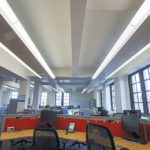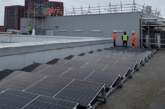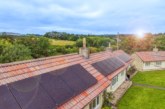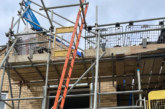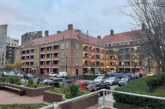Manchester City Council has set out its ambitious plans for the city to become carbon neutral by 2038. Andy Turton, Account Director in Client Energy Services at Whitecroft Lighting, explains how the company’s circular principles to lighting are helping to achieve that goal.
Sitting proudly at the heart of Manchester city centre, the city’s magnificent gothic town hall is testament to the Victorian wealth and ambition, a moment to the birth of the industrial revolution. Over 150 years on, and Manchester is facing up to another revolution: tackling the challenges of climate change, and like the growth of industry in 19th Century, one that will require no-less innovation and ingenuity.
It’s really exciting to see Manchester City Council leading from the front, particularly on its commitment to Manchester becoming a net zero carbon city by 2038, a full 12 years ahead of the UK target of 2050. Ashton-under-Lyne based Whitecroft Lighting has a long history of working with the Council, and our most recent venture was part of the six-year refurbishment of Manchester Town Hall, and decarbonisation of the Council’s estate.
Manchester Town Hall
Using its sustainable principles of product design led by circularity, Whitecroft undertook a large-scale lighting upgrade, including the circular regeneration programme of bespoke Raft luminaires that we originally designed and supplied in 2013. This was shaped by energy consultants, Amaresco, with an emphasis placed on lighting quality, aesthetics and reducing carbon through minimising the use of materials and energy, and increasing ongoing operational efficiency.
To achieve this Whitecroft completed a survey of each area of the building, enabling us to fully understand the existing infrastructure. This early engagement is crucial, as it allows Whitecroft to work in harmony with existing materials, and where, possible, custom design lighting accordingly to dramatically reduce the use of virgin materials in new products. This is just one of the principles of the circular economy, which will be expanded on later.
Enlightening welfare and sustainability
The City Council was clear from the outset that the welfare of its staff and building users had to sit alongside sustainability as a priority.
To achieve this we worked in partnership with the Council’s Health & Safety Executive to set up a number of trial areas where people could work, experience the lighting, and give feedback on the light quality and aesthetics. This process provided the evidence we needed to adjust our rollout across the estate.
A big part of the project was upgrading rather than replacing the Raft T5 Fluorescent lighting system in The Town Hall. This was achieved by taking a modular approach and fitting Whitecroft’s circular designed LED Gear Trays into the Raft. 2,350 gear trays were upgraded in the process. Whitecroft then improved the aesthetics of the existing Rafts, cleaning each one individually, and reattaching clips and various accessories to making them look like new, and producing a more visually uniform lighting system.
Upgrading rather than replacing the Raft lighting has meant 70% less waste and has reduced the energy output from 134kW to 75kW, with additional energy savings made through improved lighting controls. The project was completed with the help of Greater Manchester’s WMB Installations who assisted with the installation and fine-tuned the system.
Other elements of the project included replacing high ceiling lighting with Whitecroft’s Oculus pendant LED luminaire, complete with integral Passive Infrared Sensor (PIR), which was selected to complement the existing architectural fluorescent pendant solution, which has generated energy savings in excess of 70%.
We also replaced a number of surface architectural luminaires in lobby areas with new fittings sympathetic to the gothic architecture and approved by English Heritage. Finally, we also applied our circular economy principles to the lighting in all 30 of the Town Hall’s toilets, refitting another manufacturers’ luminaires, again with our circular designed LED gear trays, which significantly reduced waste and made energy savings of around 44%.
In total, the work on Manchester Town Hall is projected to make energy savings in excess of 44%, reducing carbon emissions by approximately 38 tonnes CO2/year, whilst also extending the luminaire lifecycle and facilitating future energy savings.
Manchester innovation comes full circle
At Whitecroft we have been following the business principles of circularity for a number of years now. This means that we prioritise repair, reuse, refurbishment, remanufacturing and recycling, minimising waste and the use of virgin materials.
As highlighted in this project, we have designed our circular products to include reusable and replaceable modules, which significantly reduces waste over time and extends the useful life of the materials included. This approach reduces the whole life carbon impact of our products, and helps clients to lower Scope Three emissions, by reducing the embodied carbon from the sourcing of materials and the manufacturing process.
As a Greater Manchester based manufacturer with over 77 years’ experience in the lighting industry, we were proud to play our part in helping to bringing this beautiful, historic building back to life and upgrade all the various other sites across the city.
Manchester was the very vanguard of industrial innovation and I think it’s fitting that it’s Whitecroft Lighting, an innovative Manchester company, that’s helping the City Council tackle the challenge of climate change, and push towards its ambitious net zero carbon targets.

